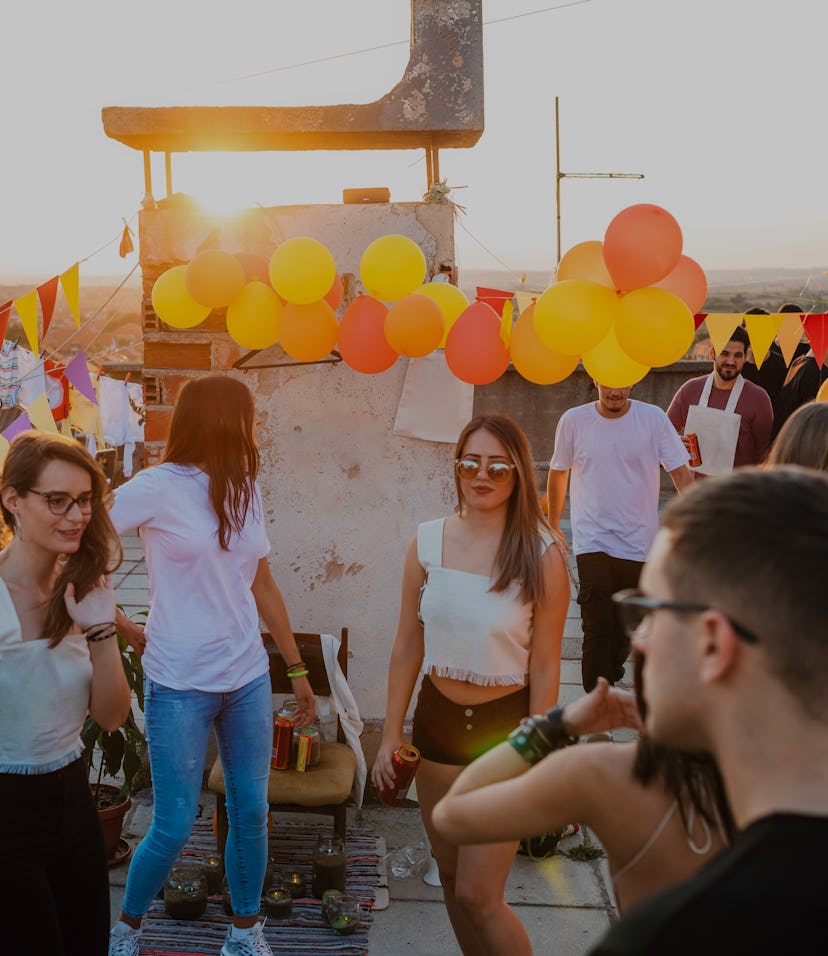Culture
Airbnb cancels all parties to curb COVID-19 and save face
With bars and clubs shuttered due to the pandemic, people have been turning to Airbnb rentals to host large parties.

Airbnb has a public health and PR problem on its hands: people have been renting homes on its platform and using them as replacements for bars and clubs shuttered during the coronavirus pandemic. The company is responding by introducing an occupancy cap of 16 people and a ban on parties for all properties on its platform globally until further notice. It's also threatening to take legal action against infringers. The company, which is planning an initial public offering (IPO) this year, appears to be trying to clean up its image.
Secret parties — "COVID parties," as they're being called, have popped up from Los Angeles to New York as quarantine fatigue sets in and some look to gather in large numbers despite local restrictions. Officials in Los Angeles recently shut off power to a rental property after neighbors called in complaints about a party being hosted at it. It's unclear if that house was rented through Airbnb, but it's likely given its market dominance.
Airbnb is perfect for these types of unauthorized parties because homes can be rented by one person, who can then show up with as many people as they like. Especially in rural areas, this behavior can easily go unnoticed. The company's problem with parties is so longstanding it previously sold hardware to help surreptitiously alert owners when decibel levels climbed too high.
“Some have chosen to take bar and club behavior to homes, sometimes rented through our platform," Airbnb says. "We think such conduct is incredibly irresponsible — we do not want that type of business, and anyone engaged in or allowing that behavior does not belong on our platform.”
Airbnb can't actually stop guests from hosting parties — it's really based on the honor system. The company can, however, ban guests from its platform should it learn they've hosted a party in violation of its rules, or bring legal challenges if local ordinances or its own rules have been violated.
As for the size of groups, Airbnb says the 16 occupant rule only applies to properties that were already able to accommodate that many people before the news rules kicked in. "We also understand that 16 is not a magic number, and issues can occur with groups of any size. To be clear, we are not sanctioning smaller gatherings with this policy and all community members are expected to comply with local health restrictions on gatherings."
Airbnb is a COVID winner — Airbnb saw a huge drop-off in business when the pandemic first hit, and had to dip into its coffers to help appease hosts, but has since rebounded. The company reported that rentals for July reached levels seen during the same time last year, a substantial improvement on the decline in March and April this year that prompted it to lay off a quarter of its staff in May. As the pandemic drags on and more employers are allowing their staff to work from home through the rest of 2020 — some even through summer 2021 — Airbnb is becoming an attractive way for urban dwellers to decamp and isolate, be it for a weekend, or for an extended period.
The company's planned listing is expected to go better than similar moves have for other sharing-economy businesses like Lyft and Uber because, unlike them, it's not as reliant on labor, and it's less prone to restrictions from local legislators. Airbnb may simply see the demand for properties shift from cities to the middle of the country. That would be good news for the company because New York, Berlin, Amsterdam, and other large cities with vibrant tourist industries have long butted heads with the service, claiming it increases rental prices and drives down available housing for locals.